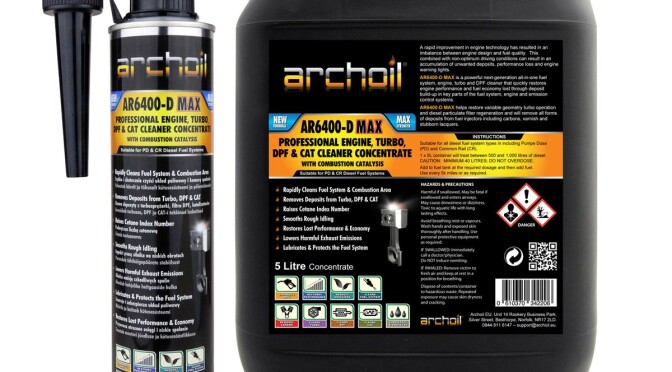Firstly, we need to understand what is meant by “work” as there are conflicting ideas and interpretations. Some would consider “work” to improve performance or increase mpg, whereas others would consider “work” to clean the fuel system, restore fuel injector efficiency or reduce friction. Others would consider a product to have “worked” if it resolved an underlying problem, such as resolving engine hesitation, restoring lost performance, or reducing excessive emissions.
So which is correct? Firstly you need to understand how additives work and what they really do:
Fuel additives directly deliver one or more of the following:
1. Clean the fuel system and restore injector efficiency
2. Remove combustion deposits
3. Help clean emissions control system components
4. Lubricate the fuel system and combustion area
5. Protect against chemical or biological contamination
6. Preserve fuel and offer cold weather protection
7. Improve the quality of combustion (catalyst)
8. And so on.
The above direct actions then may or may not result in:
1. Increase in power and torque
2. Increase in fuel economy
3. Smoother running engine
4. Smoother idle
5. Reduced exhaust emissions
6. Less mechanical vibration or noise
7. And so on.
Can you see the difference? The point I am making here is that an increase in performance or mpg is typically the resultant benefit of cleaning a fuel system, engine or reducing friction. They should not always be considered as the direct aims of fuel or oil additives. The usual goal of additives is to rid the fuel system and combustion area of deposits and, thus, from these actions, restore any lost performance or MPG. Further combustion modification (catalysts) can then improve MPG further.
We often see the expectations with additives mismanaged. If a vehicle were achieving an expected and realistic 50 mpg, one would then be disappointed to discover when they purchased and used a fuel cleaner that the MPG didn’t improve if they had purchased the cleaner to improve MPG. There has to be a degradation of fuel economy in the first place. To improve MPG up and above what the engine is designed to deliver on standard pump fuel, you need to use additives designed to improve combustion and thus maximize the energy output of the base fuel, not a cleaner.
Therefore, to resolve any confusion, most fuel additive cleaners do not directly increase economy or performance. Modern detergents remove debilitating deposits and thus restore fuel system and combustion efficiency. This may or may not increase fuel economy or engine performance. It depends on what you started with. Highly quality additives with effective fuel catalyst technology can then marginally increase MPG over standard figures, depending on the quality of base fuel being used.
Symptoms can also be mechanically related. A user may inadvertently use a cleaner or additive to resolve what is, in fact a mechanical or electrical issue. This is not necessarily bad as additives can be used as a low-cost process of elimination. However, when using additives to resolve problems, it is important to understand the symptoms and, thus the probability of these symptoms being resolved through “chemical” means. Additives are not mechanics in a can.
Furthermore, a successful cleaning cycle does not automatically result in a smoother, more performant, or more economical engine. Different engine designs respond to deposits in different ways.
Many cleaners (not all) work by restoring performance and MPG. Time and time again, we see customers purchasing one-shot cleaners to improve MPG on an engine running well and achieving the expected MPG with the hope that it would magically improve fuel economy. Now, if you purchased the cleaner to maintain a clean system, then this is valid. Still, we see the expectations of many customers mismanaged when it comes to what they were expecting versus what they should reasonably expect versus what products really do and how this translates into discernible improvements to their vehicle.
The best advice we can give is for you to understand your requirements and goals concerning fuel, fuel additives, and lubricants. Don’t purchase additives on a whim or hope they may fortuitously effect some change, as this is a surefire way to disappointment. Work out what you are trying to achieve: rectify a running issue, protect the fuel system or engine, maintain a clean running system to prevent future problems, reduce wear, increase power, improve fuel economy, improve fuel quality, or many of these combined, etc. Then complete your own research or consult with a professional to match the correct products for your needs with an understanding of what the products actually do and how this translates into measurable results for you.
To summarise, there are legitimate circumstances when additives offer genuine benefits (when chosen correctly and matched to actual requirements) and other times when they become a waste of money. They become a waste of money when users misunderstand what they are actually buying versus what they are trying to achieve.
In the follow-up article, we are going to break this down further by revealing why results can be so inconsistent when using additives so that you can make an informed decision as to whether your vehicle will benefit or not from their use. We will also reveal some pitfalls, the concept of Negative versus Positive Gain, and testing protocols so that you, a consumer, mechanic or fleet operator, etc., can accurately measure your MPG improvements.
If you require any expert advice or help, please don’t hesitate to contact us, and a member of my team or I will be pleased to help.



 categories
categories